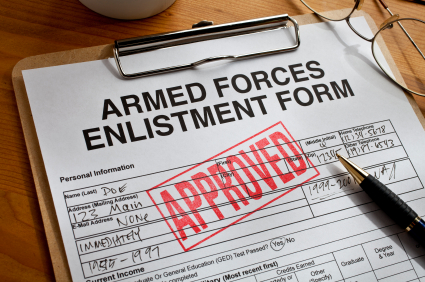 It is the end of my husband's career and I feel more like a historian than a spouse.
It is the end of my husband's career and I feel more like a historian than a spouse.
For 15 years I have carefully labeled, organized and preserved hundreds of documents that he has been issued over his career. Overkill? Maybe. But necessary, absolutely.
Last week my close friend's husband visited the on-base transition office to begin the process of leaving the Army (before retiring). He was told that, unless he provided them a copy of his original enlistment contract, which he was issued 13 years earlier, he would forfeit all entitlements and benefits. That document was lost to a house flood five years ago. She knows this for a fact.
When she asked the Army to check his digital file, it turns out that somewhere along the line an office worker had scanned a common set of orders and labeled them as his enlistment contract. The Army didn't have the correct copy either.
Now, at this point in the story, it is also important to note that you should know your policies. My friend and her husband are fighting the ruling based on the language of the policy requirement in the document. But that is another column for another day.
The important point for today: keep, organize and hold your official documents close. You will need them, you will need to produce them. It is about knowing what to keep and what to toss that is the key.
Here is a quick reference list for the most common documents:
Awards - Keep. Always. This is proof that you earned that accolade. Keep both the fancy document presented in the snazzy binder and the official order that show how and when you earned it.
Orders - Keep at least one copy. They are a paper trail of your career and, frankly, a cool keepsake for future generations.
Promotion orders - Keep. Again, proof, proof, proof.
Security clearance updates - Keep.
Sick Call Slips - Toss after a month. If you are issued a narcotic keep those specific slip call slips for proof that the medications were issued. Pain medication abuse is a huge issue in the military now and it is good to have proof that you were issued these medications when commands perform random drug testing and they can see it in your test results.
Hand receipts - Opinion differs on these sheets but I always keep my husband's because he has, at times, been issued upwards of $1 million in equipment. That's a lot to payback if that equipment suddenly goes missing. A hand receipt proves that he returned it in working order and you don't owe a dime.
TDY forms - Not necessary, but we keep these just in case there are questions later about the reimbursement amount. If you have the receipts and forms still on hand, you can prove that the amount you received is justified.
Tax returns - Keep for the basic seven years as advised by the IRS.
PT test forms - We keep for a month or two and toss. If you really want to be prepared, keep the latest results before a PCS so you can deliver them to the next unit. Otherwise, toss.
Family documents - For example, marriage certificate, birth certificates, baptismal certificates, etc. Always keep these. In the military, the finance office will ask for many of these items to pay you for certain entitlements. In the civilian world, will need these to apply for loans, enroll in schools and many other activities.
Medical documents - The military keeps a file that you can access. However, if you have a spouse who has been severely injured and plans to file for VA benefits, it may be beneficial to keep your own copies and organize them in a way where you can find what you are looking for. It is better to be able to cross-reference the military's files than search blindly. Medical documentation from military doctors is also what is used to award veterans the monetary amount they receive for injuries. Without the documentation showing that it is a military-related injury, you cannot make a case to receive the monthly medical payments.
Keeping track of a military career can be a job in itself. Even the most attentive spouses run into road blocks. For my friend, a flash flood ruined many of her husband's most important papers.
"You can't expect after 13 years and six moves for someone still to have all that paperwork," she said.
And even though the military is moving toward making these documents available in digital format, the system, as she discovered, isn't perfect yet.
So if you haven't started, pull out that cardboard box of folded, creased and smooshed documents. Lay them out in a binder and put it up on a shelf. You never know when a single piece of paper might save you weeks of hassle.




